The efficiency of salmon waste management is now improved by the installation of a Borger waste salmon “Multicrusher”.
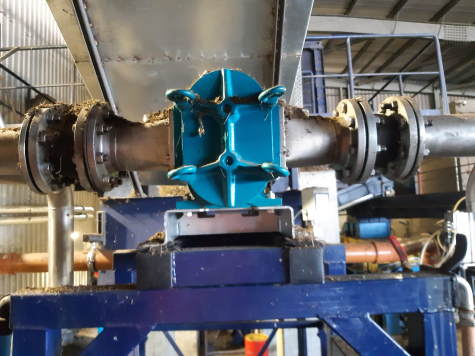
Situated in the midst of the Scottish Islands salmon fishery industry the efficiency and reliability of Borger's equipment is vital to guarantee the correct shredding of waste salmon to meet environmental and food health security regulations.
By meeting these the waste can be used in compost. The compost made is then available for use as a much-needed and highly environmentally sustainable compost for local farms.
That's far from being the only environmentally advanced technology used at this facility. Read on through the Borger Press release below and find out more:
Press Release 22 March 2020;
Borger’s Waste Salmon Crush for Isle of Lewis Biogas
A Multicrusher made by Borger is playing a key role in the continuing success of an award-winning waste-to-energy operation in Outer Hebrides, Scotland.
At Stornoway’s Creed Integrated Waste Management Facility (IWMF) on the Isle of Lewis, the Borger Multicrusher consistently chops a 7-cubic ton batch per shift of coarse waste salmon. This has enabled the facility to integrate its salmon waste management with other organic wastes such as household food waste and garden waste which provides feed material for its AD/ biogas process.
Food Waste Management for Compliance with EU Standards
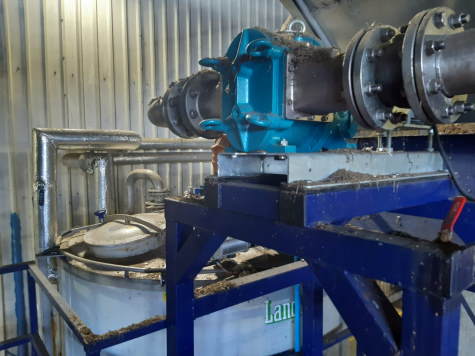
Crucially guaranteeing the shred of waste salmon to meet BSI PAS 110 regulations AND EU ABP regulation 1774/2002 [5a] for the safe use of digestate as a renewable fertiliser, the Borger Multicrusher cuts the waste to the required maximum particle size of 12mm.
This vital cog in the process has helped Comhairle nan Eilean Siar (the Local Authority for the Western Isles), together with its partners, The Scottish Salmon Company, Pure Energy Centre PEC, and Community Energy Scotland win the prestigious Scottish Environment Business VIBES award.
Donnie Macmillan, Plant Manager and in charge of Salmon Waste Management at the Creed facility, said:
“Borger’s Multicrusher works extremely well for us in a very harsh environment. Some salmon waste can be quite tough and abrasive, so understandably we see wear on the cutters during our inspections, but that’s perfectly understandable”.
He added:
“Importantly, the Borger unit helps us meet all of our PAS 110 requirements, which is all part of what we set out to achieve here – optimising the methods of managing waste. In this case optimisation is achieved through not sending waste salmon to landfill sites, and not having to have it transported off the island”.
Based on the proven design of the Borger Rotary Lobe Pump, the twin-shaft Multicrusher homogenizes the waste salmon to facilitate the pumping and pasteurisation process at Creed, ensuring that downstream equipment can operate smoothly. By inserting individual blade disks and defining the direction of rotation of the shafts, operators have the flexibility to choose which way the pumped medium flows. Various blade widths and cutting profiles determine the final cutting yield.
David Brown, Borger UK’s Managing Director, commented:
“We are very proud to play our part at Creed. It rightly deserves all the praise it gets for showing what can be done to protect the environment and reduce carbon footprint with good practice, forward-thinking and hard work”.
Biogas Production, CHP, Optimised Use of Renewable Electric Power, Thermal Storage and Hydrogen Technology Also in Use at Creed
Managing waste from the island’s population of approximately 22,000, the Creed IWMF has grown steadily to include a combined heat and power plant (CHP), electric boiler and thermal store, a wind turbine and a hydrogen system comprising electrolyser, storage and refuelling station, and a 960m3 AD/biogas plant.
Some of the electricity generated by the CHP is used to produce hydrogen and oxygen. This is captured, compressed and delivered to the salmon hatchery, where oxygenation is essential.
Hydrogen is used in a small fuel cell to provide electricity to the remote site, which sometimes suffers from electrical network failures. Previously, back-ups were provided by ageing diesel generators, meaning higher CO2 emissions and delivery costs. The hydrogen system at Creed also includes a refuelling station, where some of the hydrogen is used to refill a dual-fuel Refuse Collection Vehicle (RCV) operating on hydrogen/diesel.
Find out more about Salmon Waste Management at Borger.
01902 798 977
PR ends
Why is Food Waste Processing So Important?
Food waste or food loss is food that is wasted, lost or uneaten. The causes of food waste or loss are numerous and occur at the stages of producing, processing, retailing and consuming.
Global food loss and waste amounts to between one-third and one-half of all food produced.
Loss and wastage occur at all stages of the food supply chain or value chain.
In low-income countries, most loss occurs during production, while in developed countries much food – about 100 kilograms (220 lb) per person per year – is wasted at the consumption stage.
- via Wikipedia.
Best Practice in Food Waste Management
To comply with the best practice in Food Waste Management is necessary to operate a food waste collection process and dispose of it at a local Anaerobic Digestion (AD) facility. Here it will be processed and ultimately converted into renewable energy. By doing this all producers of food waste can help to control the emission of greenhouse gas blamed for climate change. ,
There is a silver lining for waste producers, who comply with best practices in Food Waste Management, in all nations which charge highly for the disposal of waste to landfills. That's because they save money. They potentially reduce their waste disposal costs by recycling commercial food waste into energy which is produced at the AD facility.
An Easy Way to Ensure Your Business Complies with Good Food Waste Management Practice
The big waste management companies offer to provide a waste audit for all businesses which seek advice which will help us to understand the commercial food waste collection needs of your business. They know how to dispose of food safely, which allows them to advise on providing a bespoke service tailored to the waste volumes a business generates and the specific requirements of salmon waste management.
However, where special food waste recycling methods are indicated we advise that businesses may benefit from contacting Borger direct and installing specialist plants such as the Borger Multicrusher, which homogenizes the waste salmon at the Creed facility as described above.
Principles of Good Food Waste Management
All businesses can increase recycling rates and reduce CO2 emissions with segregated Food Waste Collections. For most businesses, food waste is inevitable; but by segregating food waste in the most effective way, businesses can increase their recycling rates, reduce CO2 emissions and move towards zero waste to landfill.
At the Creed facility, their salmon waste arrives from fish farms in bulk, but all businesses can segregate at the source. By segregating your food waste, you can help reduce the environmental impact of your business and meet your sustainability targets. It’s better for the environment, simple to do and doesn’t cost the earth.
The big waste companies state that extra waste segregation doesn’t have to increase business costs.
In fact, by reducing the weight in other bins, can often result in a more cost-efficient service that saves local councils and ratepayers money.


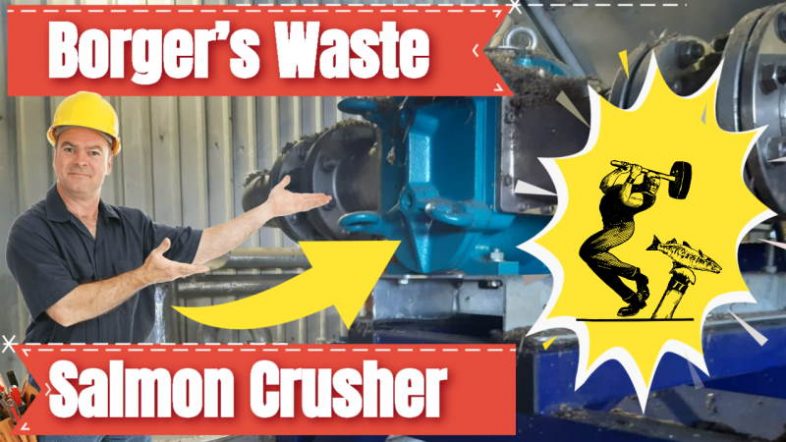
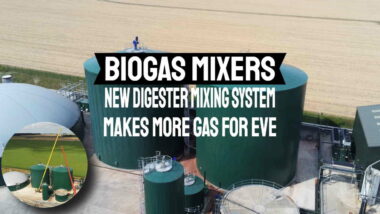
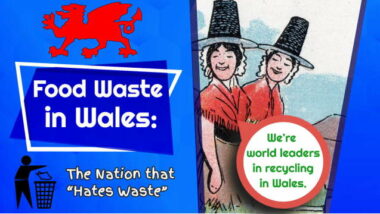

Excellent waste re-use to reduce our energy consumption. Although it is now more expensive, it appears to be worthwhile as an alternative energy source.